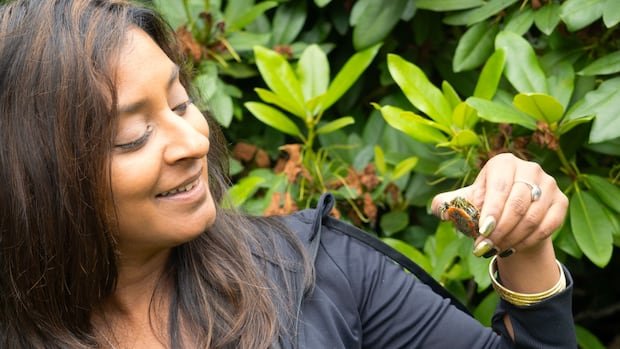Menita Prasad, the animal care director at the Greater Vancouver Zoo, emphasizes the lack of attention given to turtles compared to more popular animals. She stresses the importance of providing special care to British Columbia’s endangered western painted turtles. The zoo is actively involved in a ten-year initiative aimed at reviving the population of this native freshwater turtle species.
Prasad highlights the unique features of the western painted turtle, such as its striking bright-red plastron. The zoo, located in Langley, B.C., is currently halfway through the project, which involves collecting turtle eggs in the wild, hatching them, and releasing the turtles to enhance their chances of survival.
This year has been exceptionally successful for the zoo, with over 550 turtles released, double the usual yearly average. However, Prasad acknowledges that more efforts are needed to ensure the species’ long-term survival. The project officially started in 2019, although the zoo had been releasing turtles even earlier, totaling around 3,000 over the last decade.
Prasad refrains from disclosing specific release locations due to concerns about potential poaching for consumption. She mentions the threats faced by the western painted turtles, including invasive species like red-eared sliders, which outcompete them in their natural habitats.
The recovery program, a collaboration between the Coastal Painted Turtle Project, the B.C. government, and the zoo, aims to offer young turtles a better chance at survival by releasing them at a weight that makes them less vulnerable to predators. By providing this additional support, the project seeks to help the turtles navigate through critical early stages of life when they are most at risk.
Biologist Aimee Mitchell, involved in the Coastal Painted Turtle Project, emphasizes the need for ongoing efforts to ensure the recovery and sustainability of the turtle populations. The slow reproductive rate and long lifespan of western painted turtles necessitate continuous conservation work to maintain healthy populations in the future.
Prasad urges the public to be conscious of the turtles and their nesting sites on freshwater beaches. She describes the unique behaviors of the released turtles, noting how some take their time exploring before venturing into their new environment.

